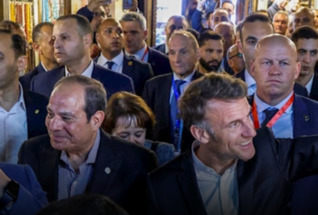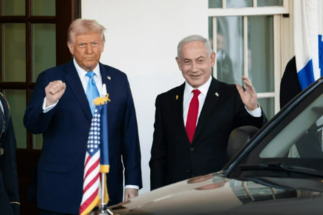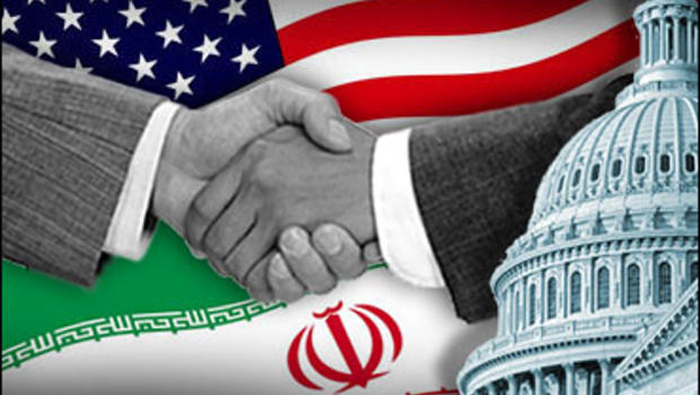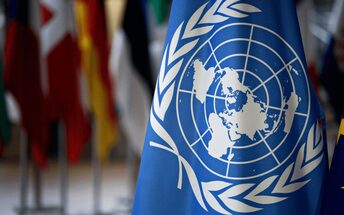-
Barnier and Johnson clash over post-Brexit ties
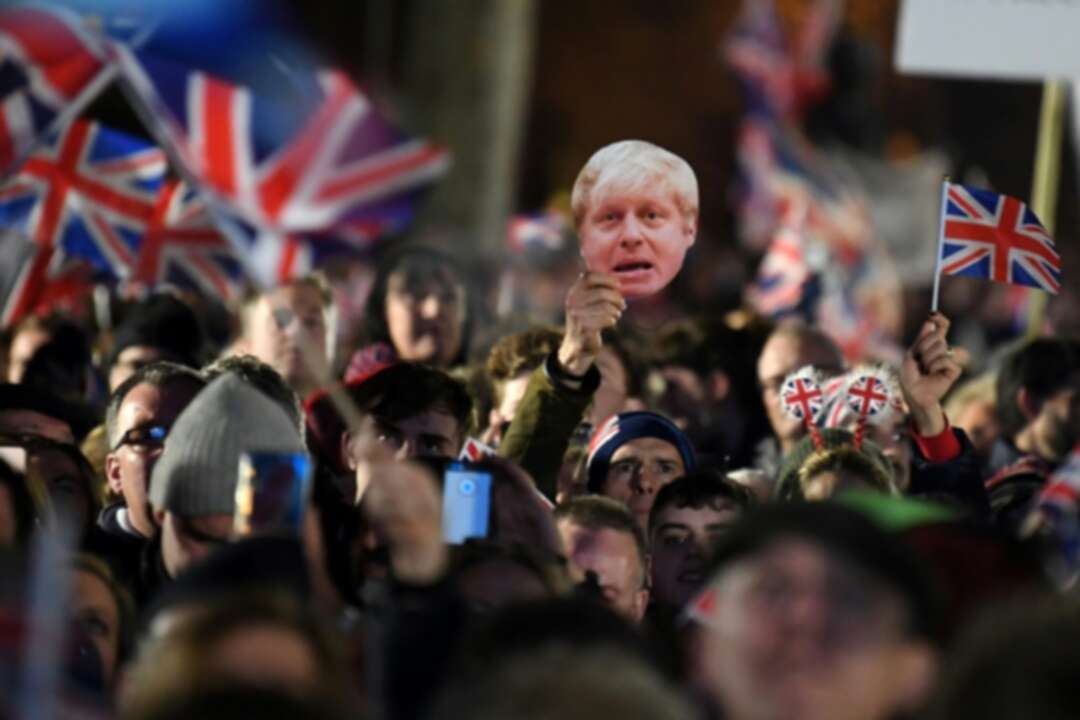
The EU and Britain open hostilities in Brexit's next bruising chapter on Monday, laying down red lines for a post-divorce future following the UK's dramatic exit from the bloc.
Europe's chief negotiator Michel Barnier will formally announce his ideas for new ties in Brussels, with trade the most pressing issue, while Johnson will firmly make his case in a speech in London.
According to the prime minister's office, Johnson will come out swinging against the EU, saying that Britain has no more reason to meet EU standards than the EU has to meet British ones.
"There is no need for a free trade agreement to involve accepting EU rules on competition policy, subsidies, social protection, the environment, or anything similar," Johnson will say, according to Downing Street.
"The UK will maintain the highest standards in these areas –- better, in many respects, than those of the EU –- without the compulsion of a treaty and it is vital to stress this now."
There will be just 11 months to reconcile the colliding visions of EU-UK relations with Johnson flatly refusing to extend the negotiating period beyond the end of this year.
Until then, Britain has agreed to abide by the rules of EU membership, but failing a deal, the two sides would resort to the most basic of relationships with border checks and high tariffs causing big shocks to the cross-channel economy.
Johnson, a polarising figure accused of glossing over the complexity of leaving the EU, is in a rush to seal an agreement and deliver the "independence" promised by Brexiteers, following Britain's exit on January 31.
This would also open the way for Britain to seal more ambitious trade deals across the globe, most notably with the United States.
Brussels has repeatedly warned Britain that the depth of future trade ties will depend on how closely London adheres to EU standards -- what is known as maintaining the level playing field.
"There will be two conditions which will be very clear in this trade agreement," Barnier told French broadcaster LCI on Sunday.
"We want an agreement on fisheries, which will be difficult... and at the same time, we want an agreement on the level playing field," he said.
"Not everything will be done in 10 months. We'll do the maximum," he added on French radio on Monday.
Britain has asked for the EU's trade deal with Canada to be used as a model, which Europeans consider acceptable on tariffs and quotas, but too weak on provisions to guarantee fair trade.
In a sign of the fraught nature of the high-stakes talks, Irish Prime Minister Leo Varadkar urged London on Sunday to "tone down" what he called "nationalistic rhetoric".
Britain should avoid repeating the past mistake of insisting on "rigid red lines" which "makes it hard to agree", he said.
Barnier's negotiating mandate will be discussed and approved by the EU's 27 member states later this month with direct trade talks with London to begin in early March.
Fishing access for European boats in British waters will be a key issue to solve, even though both parties have promised to reach an agreement before July 1.
Fishermen from eight member states, in particular, France and Denmark, are heavily dependent on British waters that account for 30 percent of sales of French fishing crews.
Yet, "it so happens that the United Kingdom exports 75 percent of its fishing products to the European Union", Foreign Minister Jean-Yves Le Drian told French media.
source: AFP
You May Also Like
Popular Posts
Caricature
BENEFIT AGM approves 10%...
- March 27, 2025
BENEFIT, the Kingdom’s innovator and leading company in Fintech and electronic financial transactions service, held its Annual General Meeting (AGM) at the company’s headquarters in the Seef District.
During the meeting, shareholders approved all items listed on the agenda, including the ratification of the minutes of the previous AGM held on 26 March 2024. The session reviewed and approved the Board’s Annual Report on the company’s activities and financial performance for the fiscal year ended 31 December 2024, and the shareholders expressed their satisfaction with the company’s operational and financial results during the reporting period.
The meeting also reviewed the Independent External Auditor’s Report on the company’s consolidated financial statements for the year ended 31 December 2024. Subsequently, the shareholders approved the audited financial statements for the fiscal year. Based on the Board’s recommendation, the shareholders approved the distribution of a cash dividend equivalent to 10% of the paid-up share capital.
Furthermore, the shareholders endorsed the allocation of a total amount of BD 172,500 as remuneration to the members of the Board for the year ended 31 December 2024, subject to prior clearance by related authorities.
The extension of the current composition of the Board was approved, which includes ten members and one CBB observer, for a further six-month term, expiring in September 2025, pending no objection from the CBB.
The meeting reviewed and approved the Corporate Governance Report for 2024, which affirmed the company’s full compliance with the corporate governance directives issued by the CBB and other applicable regulatory frameworks. The AGM absolved the Board Members of liability for any of their actions during the year ending on 31st December 2024, in accordance with the Commercial Companies Law.
In alignment with regulatory requirements, the session approved the reappointment of Ernst & Young (EY) as the company’s External Auditors for the fiscal year 2025, covering both the parent company and its subsidiaries—Sinnad and Bahrain FinTech Bay. The Board was authorised to determine the external auditors’ professional fees, subject to approval from the CBB, and the meeting concluded with a discussion of any additional issues as per Article (207) of the Commercial Companies Law.
Speaking on the company’s performance, Mr. Mohamed Al Bastaki, Chairman BENEFIT , stated: “In terms of the financial results for 2024, I am pleased to say that the year gone by has also been proved to be a success in delivering tangible results. Growth rate for 2024 was 19 per cent. Revenue for the year was BD 17 M (US$ 45.3 Million) and net profit was 2 Million ($ 5.3 Million).
Mr. Al Bastaki also announced that the Board had formally adopted a new three-year strategic roadmap to commence in 2025. The strategy encompasses a phased international expansion, optimisation of internal operations, enhanced revenue diversification, long-term sustainability initiatives, and the advancement of innovation and digital transformation initiatives across all service lines.
“I extend my sincere appreciation to the CBB for its continued support of BENEFIT and its pivotal role in fostering a stable and progressive regulatory environment for the Kingdom’s banking and financial sector—an environment that has significantly reinforced Bahrain’s standing as a leading financial hub in the region,” said Mr. Al Bastaki. “I would also like to thank our partner banks and valued customers for their trust, and our shareholders for their ongoing encouragement. The achievements of 2024 set a strong precedent, and I am confident they will serve as a foundation for yet another successful and impactful year ahead.”
Chief Executive of BENEFIT; Mr. Abdulwahed AlJanahi commented, “The year 2024 represented another pivotal chapter in BENEFIT ’s evolution. We achieved substantial progress in advancing our digital strategy across multiple sectors, while reinforcing our long-term commitment to the development of Bahrain’s financial services and payments landscape. Throughout the year, we remained firmly aligned with our objective of delivering measurable value to our shareholders, strategic partners, and customers. At the same time, we continued to play an active role in enabling Bahrain’s digital economy by introducing innovative solutions and service enhancements that directly address market needs and future opportunities.”
Mr. AlJanahi affirmed that BENEFIT has successfully developed a robust and well-integrated payment network that connects individuals and businesses across Bahrain, accelerating the adoption of emerging technologies in the banking and financial services sector and reinforcing Bahrain’s position as a growing fintech hub, and added, “Our achievements of the past year reflect a long-term vision to establish a resilient electronic payment infrastructure that supports the Kingdom’s digital economy. Key developments in 2024 included the implementation of central authentication for open banking via BENEFIT Pay”
Mr. AlJanahi concluded by thanking the Board for its strategic direction, the company’s staff for their continued dedication, and the Central Bank of Bahrain, member banks, and shareholders for their valuable partnership and confidence in the company’s long-term vision.
opinion
Report
ads
Newsletter
Subscribe to our mailing list to get the new updates!

